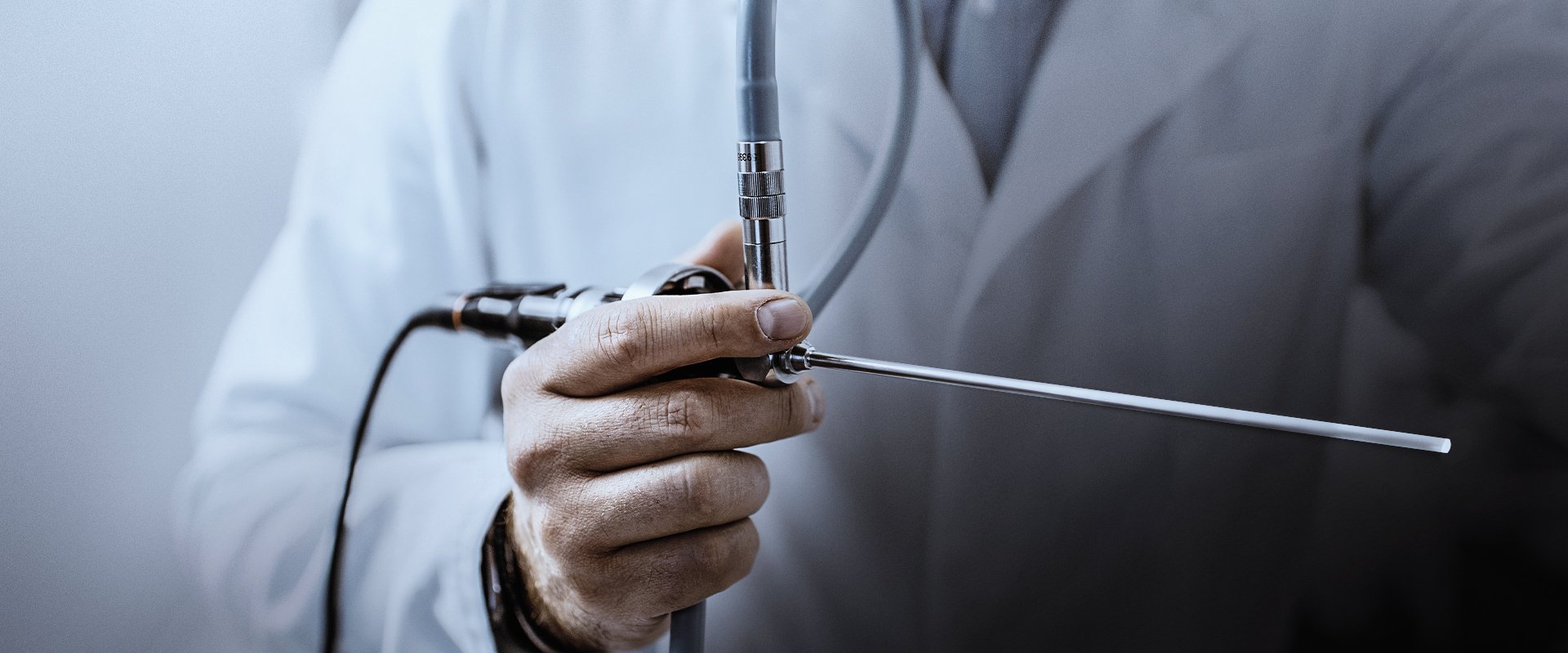
Prehab for Arthroscopic Procedures
AT EVOLVE
Prehab Physical Therapy for Arthroscopic Procedures
HOW CAN PHYSICAL THERAPY PREPARE ME FOR ARTHROSCOPIC SURGERY?
Arthroscopic surgery is a type of less-invasive surgical procedure used to diagnose and treat many different types of orthopedic conditions. In cases where the surgery is not an emergency, there can be many benefits to working with a physical therapist prior to undergoing the procedure. A process called “prehabilitation,” this active recovery approach can help you prepare for the surgery and may lead to better post-surgical outcomes.
WHAT DOES PREHABILITATION FOR ARTHROSCOPIC SURGERY LOOK LIKE?
To begin, my team of therapists and I will carefully review your medical history, injury history and ask you about your symptoms. We will also ask questions about your upcoming surgery. With this information we will perform a physical examination to evaluate the strength, mobility and flexibility of the injured area and nearby areas and will likely watch you perform a series of functional movements to determine how well you can use the affected body area. This information allows us to create a program to address symptoms like pain, inflammation, weakness and stiffness as much as possible prior to your surgery. In addition to addressing these impairments, we can educate you on equipment that might be helpful to have after surgery to assist in your recovery and to help you perform daily tasks while your body is recovering.
WHAT IS ARTHROSCOPIC SURGERY?
Arthroscopic surgery is a type of less-invasive surgical procedure most commonly used to diagnose and treat orthopedic issues. Unlike an open procedure wherein a large incision is created to allow the surgeon to visualize and access the surgical area, an arthroscopic approach utilizes small incisions and pencil thin-instruments with fiber optic video cameras to visualize the area and perform the procedure. The benefit to these smaller incisions is less trauma to the body tissues which results in less pain, inflammation and swelling.
This type of procedure is used throughout the body but often is utilized to perform surgery on the wrist, elbow, shoulder, knee, ankle, and hip. While there are many types of arthroscopic procedures, some common uses of an arthroscopic approach are for the following:
- Loose bone fragments
- Damaged or torn cartilage
- Inflamed joint linings
- Torn ligaments
- Scarring within joints
- Rotator cuff tears
- Meniscus repairs
- Carpal tunnel syndrome
WHY NOT WAIT UNTIL AFTER SURGERY?
People undergo arthroscopic surgery for many different reasons. In the case of an emergency surgery, the focus of physical therapy will be on recovery after the fact. Many other surgeries, however, occur after a period of conservative care and chronic symptoms. In these cases, prehabilitation can be very helpful.
Many people are familiar with the benefits of physical therapy after surgery to help the body recover and to restore normal function. Fewer people are familiar with how they can benefit from working with a physical therapist in anticipation of undergoing the surgery. Many times after we’ve sustained an injury or if we’ve been dealing with symptoms for a long time we naturally decrease our level of movement and exercise to avoid provoking uncomfortable or painful symptoms. While this choice will most likely accomplish the goal of reducing our symptoms, it doesn’t necessarily put us in the best position for an easy recovery from surgery. It is normal for inflammation, weakness, and stiffness to develop in response to surgery, especially if a period of restricted use or time spent in a cast or sling is required. The better condition the area and, let’s face it, your entire body is prior to surgery, the easier it is to recover to your prior level of function.
End Injury Progression
Physical therapy for Arthroscopic procedures has proven to prevent injury, slow and even stop pain issues, improve performance, and reverse injury progression in many cases.
Relieve Pain
The movements used in this technique can target your entire body helping you to manage discomfort and pain during the course of your physical therapy treatments.
Improve Range of Motion
Posture awareness is an important area to focus on due to the fact that certain positions may cause you further discomfort and pain.
Restore Mobility
You can regain mobility and flexibility by taking part in the stretches and exercises as prescribed by your physical therapist.
How Long Will Prehab Physical Therapy for Arthroscopic Procedure Treatments Last?
If you decide to work with a physical therapist to help prepare for an arthroscopic procedure,, your entire treatment plan could consist of around 8-20+ different physical therapy sessions that will each last 60-90 minutes. Once you complete your customized physical therapy treatment plan, you will be able to continue to do the prescribed stretches and exercises utilized during your PT sessions yet in the comfort of your own home.
WHAT CAN YOU EXPECT FROM PREHABILITATION FOR ARTHROSCOPIC SURGERY?
My team of therapists will individualize a prehabilitation program just for you, however, there are many elements that are common across different prehabilitation programs. To help you gain a better understanding of what to expect, here is a list of some common goals for arthroscopic surgery prehab:
Set expectations: Having an idea of what to expect after the procedure can ease some of your anxiety and help ensure you have what you need to support your recovery. Getting to know your physical therapist before surgery will help build trust with them when it comes time for post-operative care. They can also advise you on any equipment or modifications to your home that might be necessary, help you understand what kind of help or support you will need from others, and prepare you for how your body may feel after surgery.
Manage pain and inflammation: Pain and inflammation are natural results of injuries. They alert us that we need to protect the injured area and that the body is taking steps to start the healing process. In some cases, however, your surgeon may require that your injury is “quiet,” meaning it can tolerate some stress and activity without causing significant swelling or other symptoms, before they operate. If this is the case, or if surgery is delayed for any reason, learning strategies to manage pain and inflammation in the meantime will help you stay comfortable and as active as possible.
Learn how to use assistive devices or to function while the surgical area is healing: If you will be leaving the hospital in a cast or sling, learning how to perform some daily tasks with one available arm can be very helpful. Similarly, if you will be leaving the hospital with a shiny new walker, cane, or crutches, learning how to use them beforehand is a good idea. Immediately post-surgery, when you are still feeling the effects of anesthesia, and pain and stiffness are setting in, is not the best time to learn how to use an unfamiliar device Sometimes you don’t realize where you will need assistance until you have tried some of these activities and it is important to have the right support and equipment ahead of time.
Build or maintain strength and flexibility: While the brain knows that surgery is intended to “heal” the injury, the body views the surgical procedure as another injury to the tissues. Maximizing strength and flexibility prior to the surgery can help decrease muscle atrophy and stiffness following the procedure which can ultimately quicken your recovery. Additionally, addressing any impairments in other areas of the body can help you handle the recovery more easily.
Prehabilitation for arthroscopic surgeries is an excellent choice for those wanting to get a head start on their recovery and to help improve their chances of a good surgical outcome. My team of therapists and I would love to stand by you on both sides of the operating table. Call Evolve today to schedule an appointment with one of our physical therapists today.
Mill Basin (located in Harbor Fitness)
6161 Strickland Ave
Brooklyn, NY 11234
Monday: 7am-8pm
Tuesday: 7am-8pm
Wednesday: 8am-5pm
Thursday: 7am-8pm
Friday: 8am-1pm
Park Slope (located in Harbor Fitness)
550 5th Ave.
Brooklyn, NY 11215
Monday: 9am-8pm
Tuesday: 8am-6pm
Wednesday: 9am-8pm
Thursday: 8am-6pm
Friday: 8am-3pm
Gravesend
372 Avenue U
Brooklyn, NY 11223
Monday-Thursday: 8am-8pm
Friday: 8am-3pm
Ready to take the next step to a healthier you?
Contact Us Today!
PHYSICAL THERAPY FOR PRE-OP ARTHROSCOPIC PROCEDURES!
Need Prehab for an Arthroscopic Procedure?
Let our caring and compassionate physical therapists help you with relieving pain while getting you back on your feet comfortably.
Call now to schedule your first PT consultation free of charge.
Call: 1-718-957-2422







